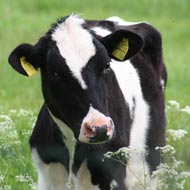TB testing changes for cattle grazed on Welsh commons

From 31 December, 2015 farmers will no longer be automatically allowed to move their cattle without a valid pre-movement test.
Cattle movement rules in Wales are set to change for keepers wishing to move their herds to or from common land.
From 31 December, 2015 farmers will no longer be automatically allowed to move their cattle without a valid pre-movement test.
The changes bring TB testing rules for cattle moved between a holding and common land in line with national TB testing policy.
In a statement, deputy farming minister Rebecca Evans said: “Our TB Eradication Programme for Wales is underpinned by the key principles of keeping bovine TB out, finding it fast and stopping it from spreading.
“An essential part of our approach is to find infection early through regular testing. By bringing the testing rules for cattle being moved to and from common land in line with other cattle movements, we are reducing the risk of undetected disease being passed on.
In the 2015 UK TB Eradication Plan, the Welsh Government committed to removing the common land pre-movement testing exemption in line with the European Commission’s concerns about the risk posed by grazing cattle on common land.
The acceptance of TB Eradication Plans by the Commission attracts a level of co-financing which offsets some of the costs of the TB Eradication Programme.
If TB testing is not possible on the common, APHA can licence movements off the common. This is on the condition that a post-movement test will be completed back on the main holding.
The Welsh Government say that farmers, whose main holding is adjacent to the common on which they graze cattle, can undertake six monthly whole herd testing instead of pre and post-movement testing. However, APHA must be notified first.



 HMRC has invited feedback to its communications regarding the employment status of locum vets and vet nurses.
HMRC has invited feedback to its communications regarding the employment status of locum vets and vet nurses.